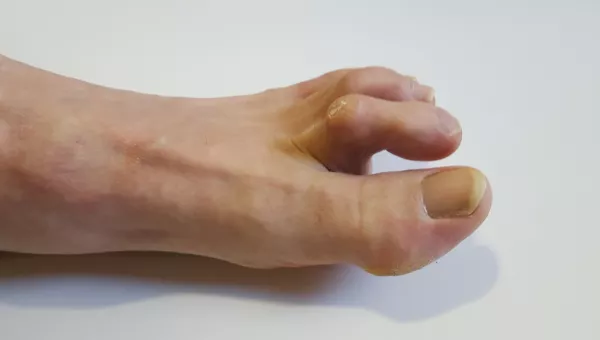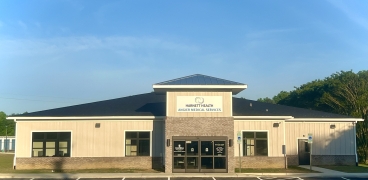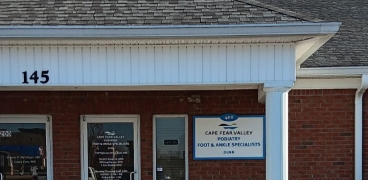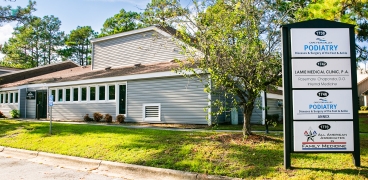The podiatrists at Cape Fear Valley Health are experienced in treating hammer toes. We’re here to help you reduce pain and stiffness so you can get back to the activities you enjoy.
Hammer Toe Symptoms
Hammer toe is a foot condition where a toe bends or curls downward instead of pointing forward. It most commonly affects the second, third or fourth toe.
The most common signs and symptoms of a hammer toe are:
- A visible bend in the middle joint of a toe, causing it to resemble a hammer
- Pain or discomfort, especially when wearing shoes or when walking
- Corns and calluses on the toe joint due to the toe rubbing
- Inflammation and redness of the affected toe
- The toe’s potential to lose its ability to extend or straighten out
In severe cases, the friction can cause ulcers or sores to develop, especially if you have diabetes or poor circulation.
When to Seek Care for Hammer Toe
Hammer toes can often be treated simply by wearing wider shoes or using padding. However, you should see your primary care provider or a podiatrist if you experience:
- Severe pain or pain that doesn't go away
- A clear and visible bend even when you’re not wearing shoes
- Stiffness or trouble moving the affected toe
- Sores or ulcers (especially if you’re diabetic)
- No improvement with home treatment
Hammer toe can start as a mild condition but can become more serious over time, leading to complications. It's essential to consult with a podiatrist or healthcare professional if you notice the signs or experience any discomfort. Early intervention can prevent progression and provide relief.
Hammer Toe Treatment at Cape Fear Valley Health
Cape Fear Valley Health’s podiatrists offer many different options for treating hammer toe, depending on the severity of the bends in your toes.
Your exact treatment plan will depend on your symptoms and overall health but generally includes:
- Giving your toes some room by switching to shoes with a wider toe box to prevent squeezing
- Using toe spacers or pads to cushion or separator for your toes
- Using splints or straps to help hold the toe in a straighter position, especially at night
- Stretching exercises to strengthen the toe muscles and improve flexibility
- Using over-the-counter pain relievers or anti-inflammatory drugs to help with discomfort
- Getting custom orthotics to help correct imbalances and provide additional support
For severe pain or inflammation, a doctor might recommend a steroid injection. It's like a powerful, targeted pain-relief shot for your toe.
If the toe becomes very rigid or other treatments don't help, surgery might be an option. It's a way to correct the deformity, especially if it's causing significant discomfort or affecting your ability to walk.









